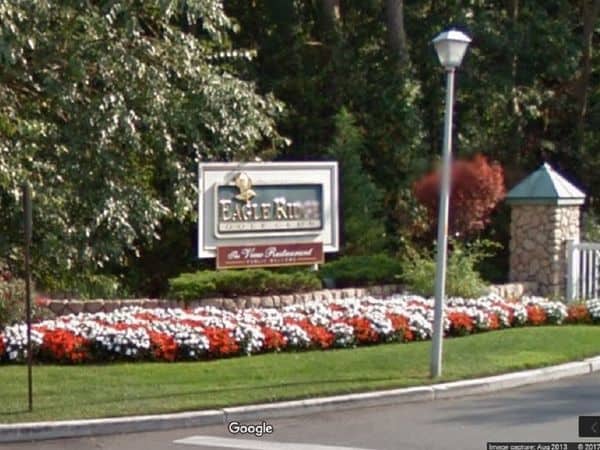
TRENTON – Fewer homes will be built as a result of the Department of Environmental Protection intent to settle with the developer of the Eagle Ridge golf course property.
The DEP published an “intent to settle,” and is still taking comment from the public.
The new plan would allow 517 residential units and 517 basement apartments, for a total of 1,034 units. Of the above-ground units, there would be 43 single-family units and 237 duplex units included in that total. There would also be five community center buildings, a clubhouse with amenities, a 23,387 square foot retail building and another 44,677 square foot retail buildings.
As part of the deal, .343 acres of isolated freshwater wetlands would be filled in, and 41.07 acres of existing forest preservation areas will remain preserved. An additional 1.94 acres of forest will be placed on a conservation restriction as part of the deal.

Comments about this settlement, or requests for copies of the plan, should be sent to: Coastal Bureau Manager, Bureau of Coastal Regulation, Division of Land Use Regulation, NJDEP, Mail Code 501-02A, PO Box 420, Trenton, NJ 08625-0420, or the office may be reached by telephone: (609) 633- 2289. Comments must be received by Nov. 30, 2017.
The initial plan was for 936 senior housing residences and 936 basement apartments. The DEP listed a number of problems the application had. Some of them involved the amount of utilities that the development would require. Some involved the amount of open space it would use up and the impact on specific species. The traffic impact study was also singled out by the DEP as not being accurate.
The applicant, GDMS Holdings, LLC, had appealed the denial, which resulted in this settlement.
Environmentalists see this as a loss.
“The NJDEP has sold out Lakewood, Barnegat Bay, and the environment to the developers once again,” said Jeff Tittel, Director of the New Jersey Sierra Club. “This project would have tremendous environmental impacts on water quality and traffic patterns. The same issues that originally caused the DEP to reject these permits still persist at this site. They will be building a massive high-intensity sprawling development on top of environmentally-sensitive land. This project would be an environmental disaster because the residents would experience flooding and pollution run-off into the Barnegat Bay.”
Tittel, in a press release, went on to describe a list of violations in the application, including: traffic, too much impervious coverage, impact on species, stormwater management, and other environmental regulations.
“The DEP admitted that the first application was a failure,” he said. “The DEP has failed to do its job by approving this project that threatens the environment and communities of Lakewood.”






